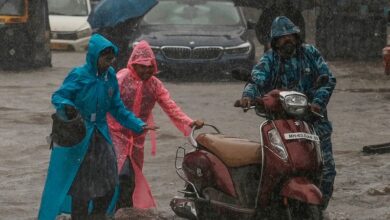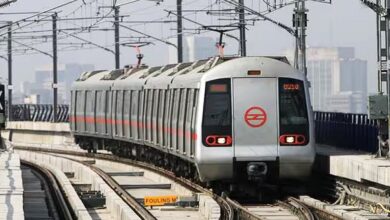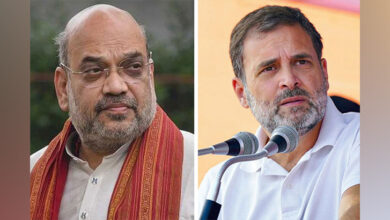
By Anil Giri
At least two agreements related to long-term energy cooperation and India’s proposal to increase funds for small development projects under the High-impact Community Development Projects (HICDPs), will be signed during the visit of External Affairs Minister of India, S Jaishankar.
Jaishankar is arriving on a short trip to Kathmandu on Thursday leading an Indian delegation at the seventh meeting of the Nepal-India joint commission, the highest level bilateral mechanism between Nepal and India entrusted to review the entire status of bilateral ties.
Although a formal announcement of the visit has yet to be made, it is learnt that Jaishankar will land in Kathmandu on Thursday morning and will co-chair the commission’s meeting. Foreign Minister NP Saud will lead the Nepali delegation in the meeting. Jaishankar had last visited Kathmandu in 2019.
Indian foreign secretary Vinay Mohan Kwatra, Joint Secretary (North, Incharge of Nepal, Bhutan) Anurag Shrivastava, spokesman at India’s Ministry of External Affairs Arindam Bagchi, and other officials from the Ministry of External Affairs who deal with boundary management issues, will accompany Jaishankar on the visit.
While the final agenda of the visit is expected to be readied by Tuesday evening, the plan is to sign the two agreements, according to officials.
The Nepali side is still working hard to give a final shape to the detailed project report of the Pancheshwar Multipurpose Project, a senior energy ministry official said.
“There are some differences between us, which need to be sorted out at the political level. If that happens and if the prime minister, energy minister and foreign minister agree, then the detailed project report of the Pancheshwar project could be finalised during the visit.”
All issues between the two countries, including border, trade, commerce, economic cooperation, and electricity trade, will be discussed at the joint commission meeting, another foreign ministry official said. But only a few agreements will be signed, according to the official.
Foreign Minister Saud told the Post that they have almost finalised the agenda and tangible progress will be made in the meeting. The issue of signing a long-term energy cooperation agreement has been in talks since the India visit of Prime Minister Pushpa Kamal Dahal in May-June last year.
During Dahal’s visit to India, the two countries had agreed to sign a long-term agreement on energy, whereby India would import 10,000 megawatts from Nepal in ten years. During a recent event on December 22, Prime Minister Dahal stated, “We are going to sign a long-term energy deal with India soon. A mid-term and a long-term energy trading deal will be signed in Kathmandu.”
After the bilateral talks on June 1 last year, Indian Prime Minister Narendra Modi had announced during a joint press meet with Dahal that the southern neighbour would buy 10,000 MW of electricity in 10 years from Nepal under a long-term power trade agreement.
“During my India visit, we have laid a good foundation for energy trade between Nepal and India. To realise the long-term power trade which was agreed between Nepal and India and to use the abundant water resources of Nepal in a practical sense, we are going to make a special announcement in Kathmandu,” said the prime minister, whose government is grappling with poor governance, subpar service delivery, and economic recession, among other problems.
During Jaishankar’s visit, Nepal will give its nod to the Indian offer to increase the budget for small projects to be implemented by local units. The budget is being increased from the existing Rs50 million per project to Rs200 million per project.
India had initially proposed a grant of IRs150 million or NRs240 million for each project. But before tabling the proposal, the Ministry of Finance has trimmed it to Rs200 million citing the requirement for local-level contributions (around 20 percent of the cost), according to finance ministry sources.
The Indian side, during Dahal’s last India, had expressed its desire to significantly increase the budget for the small development project scheme in Nepal.
According to a bilateral arrangement, the scheme, which was launched in 2003, had to be renewed every three years. But after the renewal in 2014, no projects were executed until 2017. The scheme was extended in 2017, and again in 2020, with some amendments.
India has been building schools and hospitals and other small projects under the scheme. The proposed adjustments are expected to address resource shortfalls for the execution of internal infrastructure projects or for acquiring necessary equipment for the projects, officials said.
Formerly known as small development project scheme and launched in November 2003, the Indian side has rebranded it as High-impact Community Development Projects (HICDPs).
Since 2003, over 535 HICDPs have been taken up by the government of India of which 476 have been completed while 59 are ongoing, and the total cost of all projects is around NRs 11.55 billion, the website said.
Jaishankar will call on President Ramchandra Paudel, Prime Minister Dahal and top leaders of major parties before wrapping up his trip on Friday.
Anil Giri is a reporter covering diplomacy, international relations and national politics for The Kathmandu Post. Giri has been working as a journalist for a decade-and-a-half, contributing to numerous national and international media outlets.




